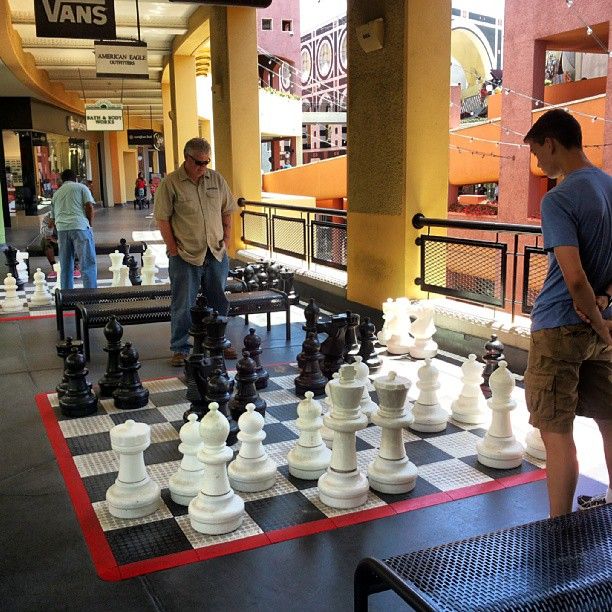The Common Denominator
July 30, 2016
Reading Time: about 3 minutes
Several days ago (July 30, 2016 to be exact), I took my girlfriend to a mall in San Diego. I’d recently read a blog post on how we should combat racism and sexism with finding similarities rather than focusing on differences, but couldn’t seem to find a common activity people from all walks of life could equally enjoy. That is, until last Saturday.
Chess and Me
As a child, chess was merely a game through which I could spend time with my parents. We could spend hours and hours playing against each other in the living room and after school, I would play against other people in my chess club. Before long, I was competing, albeit merely against other first graders.

The Power of Chess
Last Saturday, my girlfriend and I walked past a large scale chess set at Westfield Horton Plaza, San Diego, CA. She hadn’t played chess before, so I set out teaching her. In the first few moves, she learned about how the various pieces captured and moved, as well as the ultimate end goal. I’d explain my options and how I’d choose a move. Before long, a small crowd had gathered to help her - some people explained basic strategy such as occupying the center of the map while others taught forks and pins. As the game went on, the crowd grew. Many people (around 70% of those who walked by) stopped to watch. They came from all walks of life - rich and poor, fat and skinny, male and female, couples and singles all gathered to help both sides. Chess is a one of the rare singular, common activities where so many people of diverse backgrounds all work together toward a common goal.
Along the way, several trends emerged. The rich man was very confident in his moves, going so far as to proclaim
It’s a great move. A great move. Not a good move; it’s great.
That move translated into a 3 way fork a few steps later forcing me to sacrifice a rook and denting my center board coverage. Throughout, he would state an optimal move then explain the pitfalls of each viable alternative. Meanwhile the seemingly nerdier, larger man next to him often second guessed his own decisions. He’d think of short term consequences, then revoke his suggestion when the rich man pointed out flaws. On my side was a couple. While I had the lead, they wouldn’t give advice until a key point where my knight and queen were simultaneously in danger. I couldn’t find any means of saving both, but was planning on trading. When I was about to move, he suggested that I place myself in a more impactful location and not to focus too greatly the loss of my endangered knight. A few minutes later, I found a different move that focused on another side of the board. He then showed me several scenarios (all ending badly) that would’ve ensued from my previously planned move. For the rest of the game, he showed me multiple times when I could have guaranteed a checkmate but overlooked it. There is an astounding range of skill in Chess.